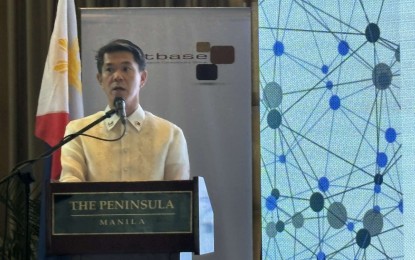MANILA – Japan, Canada, Australia, the United States, and the European Union (EU) have expressed support for the Philippines’ efforts to strengthen its artificial intelligence (AI) and cybersecurity capabilities, their envoys said Thursday.
Speaking at the Stratbase ADR Institute 2025 Pilipinas Conference, Japanese Ambassador Endo Kazuya emphasized the rapid escalation of cyberattacks globally and the pressing need for international coordination.
“Japan will continue to effectively cooperate in enhancing the Philippine cyber security capabilities, working closely with the government of this country and fully utilizing each country’s resources,” Endo said.
He added that bolstering cyber capacity across the Indo-Pacific, particularly among ASEAN nations, including the Philippines, remains a top priority.
US Embassy ICT unit chief Jennifer Schmidt said on the part of the US, Washington, DC continues to provide support in a range of areas from joint operations to policy, such as the development of the Philippines’ cybersecurity plan.
“Cybercrime, it’s a massive priority both for the Trump and Marcos administrations. So, our Federal Bureau of Investigation, our law enforcement, they roll up their sleeves and work side by side with the Philippine government on cybercrime operations,” she said.
She also noted US-led multilateral initiatives to safeguard critical information infrastructure, including exploring open radio access network (Open RAN) technologies to reduce supplier dependency.
EU Ambassador to the Philippines Massimo Santoro, meanwhile, said the EU is interested in helping the Philippines and the region maximize the use of artificial intelligence.
The envoy said the EU would raise the possibility of cooperation in the area during the inaugural Philippine-EU Security and Defense Dialogue in Brussels this month.
“It will not only be about artificial intelligence, it will be about the entire set of cooperation between the EU and the Philippines on cyber, maritime cooperation, and foreign information and manipulation interference,” he said.
Australian Ambassador Marc Innes-Brown, meanwhile, cited Australia’s ongoing cybersecurity work with key Filipino agencies, such as the Philippine Coast Guard.
He also disclosed that Manila and Canberra would identify more areas of cooperation in their inaugural bilateral cyber dialogue in Australia next month. (PNA)


